When you think about your relationship with your dog, it might seem like a simple bond of companionship and mutual affection. But have you ever wondered how much your furry friend truly understands you? It turns out, quite a lot more than you might expect. Scientists have been scratching their heads over the depth of understanding dogs have when it comes to human behavior and emotions. Let’s dive into some of the surprising things dogs grasp about us that continue to fascinate researchers.
1. They Sense Your Mood
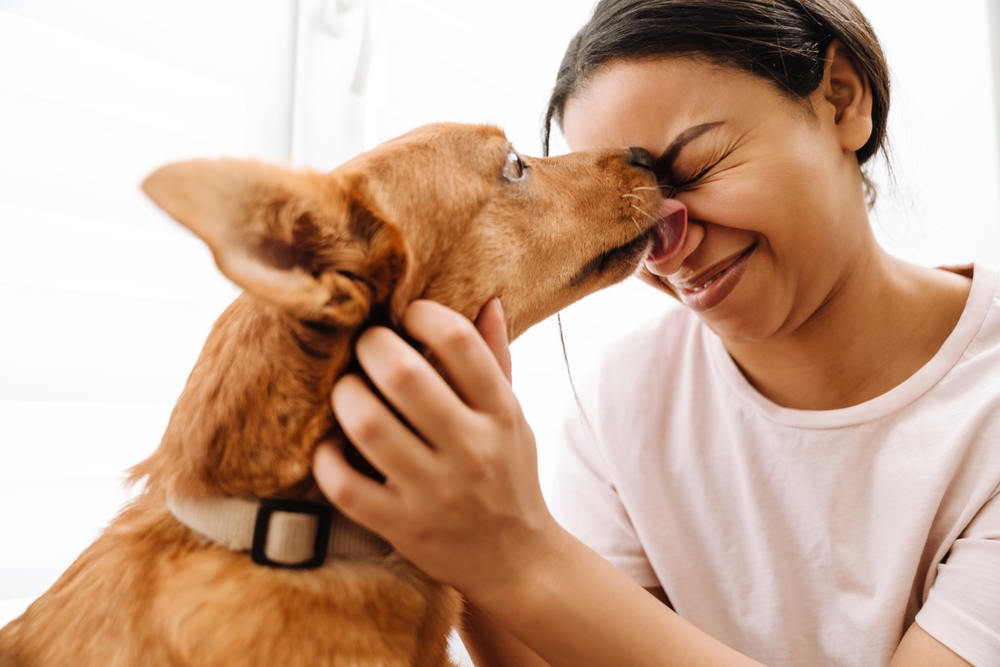
Have you ever noticed your dog snuggling up to you when you’re feeling down? Dogs have an uncanny ability to pick up on human emotions. This is not just because they can read facial expressions, but they can also sense changes in your voice and body language. A study conducted by Márta Gácsi at Eötvös Loránd University found that dogs can distinguish between happy and angry human faces and respond accordingly. It’s as if they have a built-in mood detector that tells them when you need a little extra love.
In addition to facial expressions, dogs can sense chemical changes in your body. When you’re stressed or anxious, your body releases different hormones that dogs can detect. This might explain why your dog is always there for you during tough times. It’s not just about cuddling; they genuinely want to comfort and support you. So, the next time your dog is by your side during a rough day, remember that they’re not just being a good friend—they’re instinctively responding to your needs.
2. They Understand Human Words

You might think your dog only responds to words like “sit,” “stay,” or “walk,” but their vocabulary is larger than you imagine. Studies have shown that dogs can learn dozens, even hundreds, of words and commands. They associate these words with actions, objects, or emotions, which is why they get excited when you mention “dinner” or “park.” It’s not about the specific words but the tone and context you use them in as well. The more you talk to your dog, the more they understand your unique language.
Dogs often respond to the tone of your voice more than the words themselves. A cheerful tone might mean playtime, while a stern voice might indicate that they did something wrong. It’s like they are mini linguists, picking apart your sentences to understand what you want from them. This ability showcases their keen intelligence and desire to communicate with their humans. So, don’t underestimate your pup’s understanding just because they can’t speak back—you’re having a two-way conversation more often than you think.
3. They Know Your Schedule

Dogs are creatures of habit and pick up on routines faster than you might realize. If you feed them or walk them at the same time every day, they’ll know when it’s time for these activities even without a clock. According to a study by animal behaviorist Alexandra Horowitz, dogs can anticipate daily routines and schedules, which might explain why they’re waiting by the door when you get home. They use environmental cues, like the position of the sun or the sound of your car, to figure out when to expect you.
This ability highlights just how observant your dog is. They’re constantly taking mental notes about the world around them, including your behavior. So, if you find your dog waiting at the door every day at 5 p.m., it’s not just a coincidence. They have internalized your schedule and are merely waiting to welcome you back. It’s a testament to their intelligence and their love for you—after all, you’re the highlight of their day.
4. They React To Your Tone of Voice
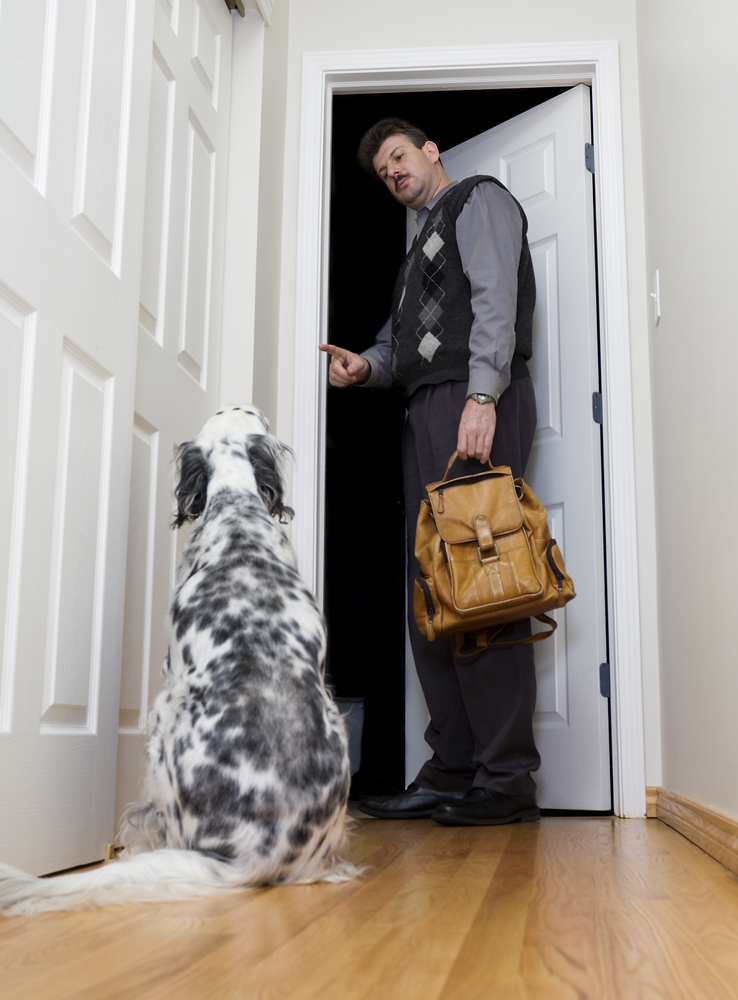
Dogs have an incredible ability to interpret the tone of your voice, which often tells them more than the words themselves. If you speak to your dog in a sweet, high-pitched voice, they’re more likely to respond positively, possibly with a wagging tail or playful demeanor. On the flip side, a sharp or angry tone can make them cower or retreat. This sensitivity to tone is why trainers emphasize using consistent, calm, and positive tones during training sessions. It helps your dog understand what is expected of them without causing confusion or fear.
Think about how you naturally adjust your tone when speaking to babies or young children. Your dog benefits from a similar approach. They thrive on positive reinforcement and are more likely to obey commands when delivered in a friendly manner. This interaction helps build a trusting and understanding relationship between you and your pet. Remember, your dog doesn’t speak human, but your tone is a universal language they are expertly tuned to.
5. They Detect Changes In Your Body Language

Your dog is a master at reading body language, often noticing subtle changes that you might not even be aware of. Dogs are observant creatures and can pick up on cues like posture, movement, and even micro-expressions. Dr. Stanley Coren, a professor emeritus at the University of British Columbia, explains that dogs use this information to predict human behavior, which is why they can anticipate your actions. For example, if you start putting on your shoes, they might assume you’re going for a walk.
This keen sense of observation is part of what makes dogs such responsive companions. They’re not just waiting for verbal commands; they’re actively analyzing your nonverbal signals. This ability allows them to adapt to your needs, whether it’s playtime or quiet time. So, next time you catch your dog reacting to your movements, remember they’re just trying to stay in sync with you. Their attentiveness is part of their charm and why they are such beloved family members.
6. They Can Tell When You’re Sick
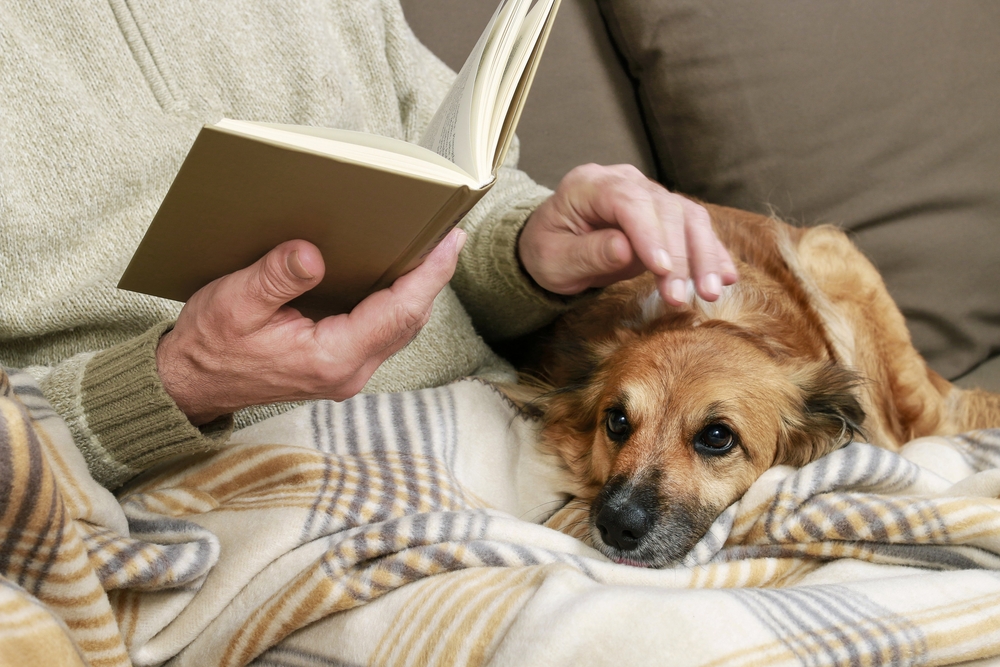
Your dog’s powerful sense of smell is not just for sniffing out treats and tracking. It’s so acute that they can detect changes in your health. Some dogs can sense when you’re sick, even before you might notice any symptoms. They pick up on the changes in your body’s scent due to illness, which can make them more attentive or protective. This ability is why dogs have been trained to detect certain medical conditions, such as diabetes or seizures.
Their health-detection skills aren’t limited to trained service dogs. Many pet owners have stories of their dogs acting unusually attentive before they realized they were coming down with something. While your dog isn’t a replacement for a doctor, their instincts can be surprisingly accurate. It’s just another example of how dogs are more in tune with us than we often give them credit for. Their sensitivity to our health is just another reason they hold such a special place in our lives.
7. They Notice Your Eye Contact

Eye contact is a powerful form of communication, not just between humans but also between you and your dog. Dogs are one of the few animals that understand the significance of human eye contact and use it to communicate. Research led by Takefumi Kikusui at Azabu University in Japan found that dogs produce more oxytocin, the “love hormone,” when they make eye contact with their owners. This hormone strengthens the bond between you and your pet, making eye contact a meaningful gesture.
Eye contact can be a way for your dog to express emotions, seek attention, or even comfort you. They might look you in the eyes to gauge your mood or figure out what you want from them. It’s their way of connecting with you on a deeper level, building trust and understanding. So, when your dog gazes into your eyes, know that it’s more than just a look—it’s a heartfelt connection. This simple act reinforces the special bond you share with your furry friend.
8. They React To Human Laughter

You might have noticed your dog getting excited or playful when you’re laughing. Dogs can sense the positive energy and joy that comes with laughter, making them eager to join in on the fun. Your laughter might prompt them to bring you a toy or start playing, as they associate it with happiness and playtime. It’s another way they connect with you and mirror your emotions. This ability to react to human laughter shows their deep social understanding and desire to be part of your world.
Furthermore, laughter can be contagious for dogs, just like it is for humans. They might not understand the joke, but they get the vibe that it’s a good thing. This reaction is part of the emotional intelligence that makes dogs such empathetic companions. It’s their way of saying, “I’m here and ready to share in your joy.” By participating in your moments of happiness, dogs reinforce the positive bond they have with you, making life with them even more delightful.
9. They Identify Your Stress Signals

Dogs have an incredible knack for picking up on stress signals from their human companions. They can sense changes in your breathing, muscle tension, and even detect when your voice changes due to stress. It’s as if they have a sixth sense for when you’re not feeling your best. When they pick up on these signals, they often respond by trying to comfort you, whether that means snuggling closer, licking your hand, or simply being near you. This intuitive empathy makes them wonderful companions during difficult times.
Not only do dogs detect stress, but they often help alleviate it. Their presence alone can be calming, reducing anxiety and offering emotional support. Spending time with your dog can lower your blood pressure and boost your mood, thanks to the release of oxytocin. Dogs seem to know when you need a little extra love and go out of their way to provide it. Their ability to understand and react to stress is just one of the many ways they enrich our lives and enhance our well-being.
10. They Learn From Your Behavior

Dogs are incredibly observant and often learn by watching how you behave. They might pick up on your habits, routines, and even your reactions to certain situations. This ability to learn through observation is why training often involves showing rather than just telling. For example, if you consistently reward them with praise or treats for good behavior, they’ll quickly learn to associate those actions with positive outcomes. It’s all about modeling the behaviors you want your dog to replicate.
This learning process is ongoing, as your dog is always watching and taking cues from you. They might notice how you react to new people or situations and mimic your responses. This can be particularly useful when socializing them with other dogs or unfamiliar environments. By observing your calm demeanor, they learn to feel more secure and confident. Your dog’s ability to learn from you underscores the importance of setting a good example, as your actions shape their understanding of the world.
11. They Notice Changes In Your Routine
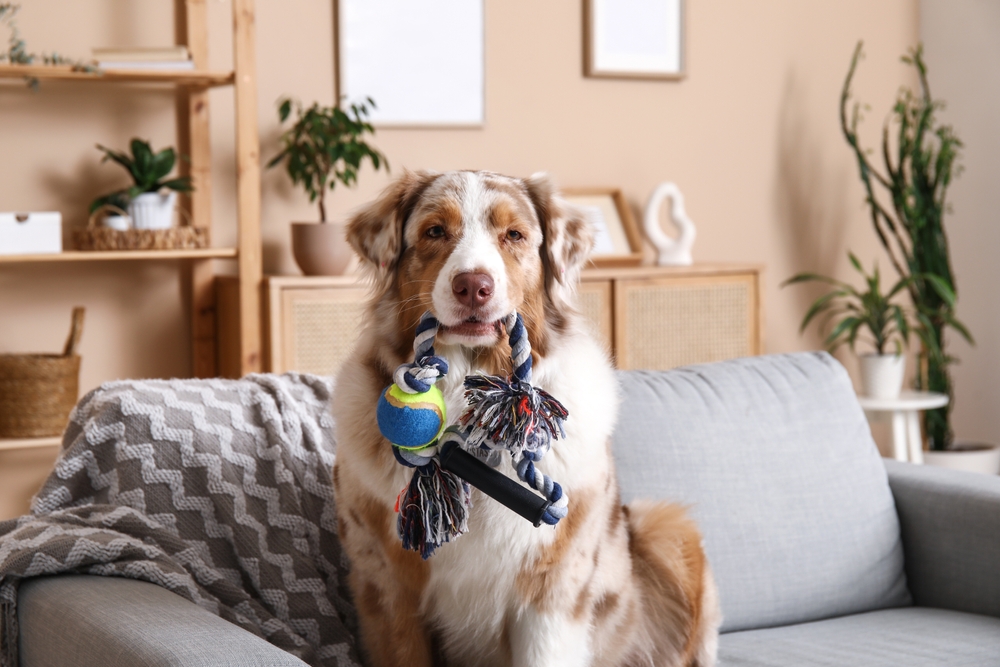
Dogs thrive on routine and quickly become accustomed to your daily schedule. If there’s even a slight change in your routine, your dog is likely to pick up on it. They notice when you wake up late, come home early, or skip the usual walk. These deviations can make them curious or even anxious as they rely on regular patterns for a sense of security. Understanding this aspect of your dog’s perception can help you maintain a stable environment for them.
Paying attention to how your dog reacts to changes can also provide insights into their well-being. If they become overly stressed or anxious when routines change, it might be a sign to ease transitions more gently. Gradual changes can help your dog adjust without feeling unsettled. They look to you for stability, and consistency in your actions provides comfort. By being mindful of their sensitivity to change, you ensure a happier, more balanced life for your furry friend.
12. They Respond To Your Energy Levels

Dogs are highly attuned to the energy levels of the humans around them. They can tell when you’re feeling energetic and ready for play or when you’re exhausted and need some downtime. This sensitivity to your energy helps them decide how to interact with you at any given moment. If you’re full of energy, they might bring you a toy or initiate a game. Conversely, if you’re tired, they might lie beside you to offer companionship without demanding much.
This responsiveness to your energy also means that dogs can help balance your mood. If you’re feeling low, their enthusiasm for a walk or play can be a great motivator to get moving. They adapt their behavior to complement your state, making them supportive companions through various life phases. Understanding and responding to your energy levels demonstrates their deep connection to you. It’s just another way they enrich your day-to-day life with their intuitive support.
13. They Can Tell When You’re Leaving
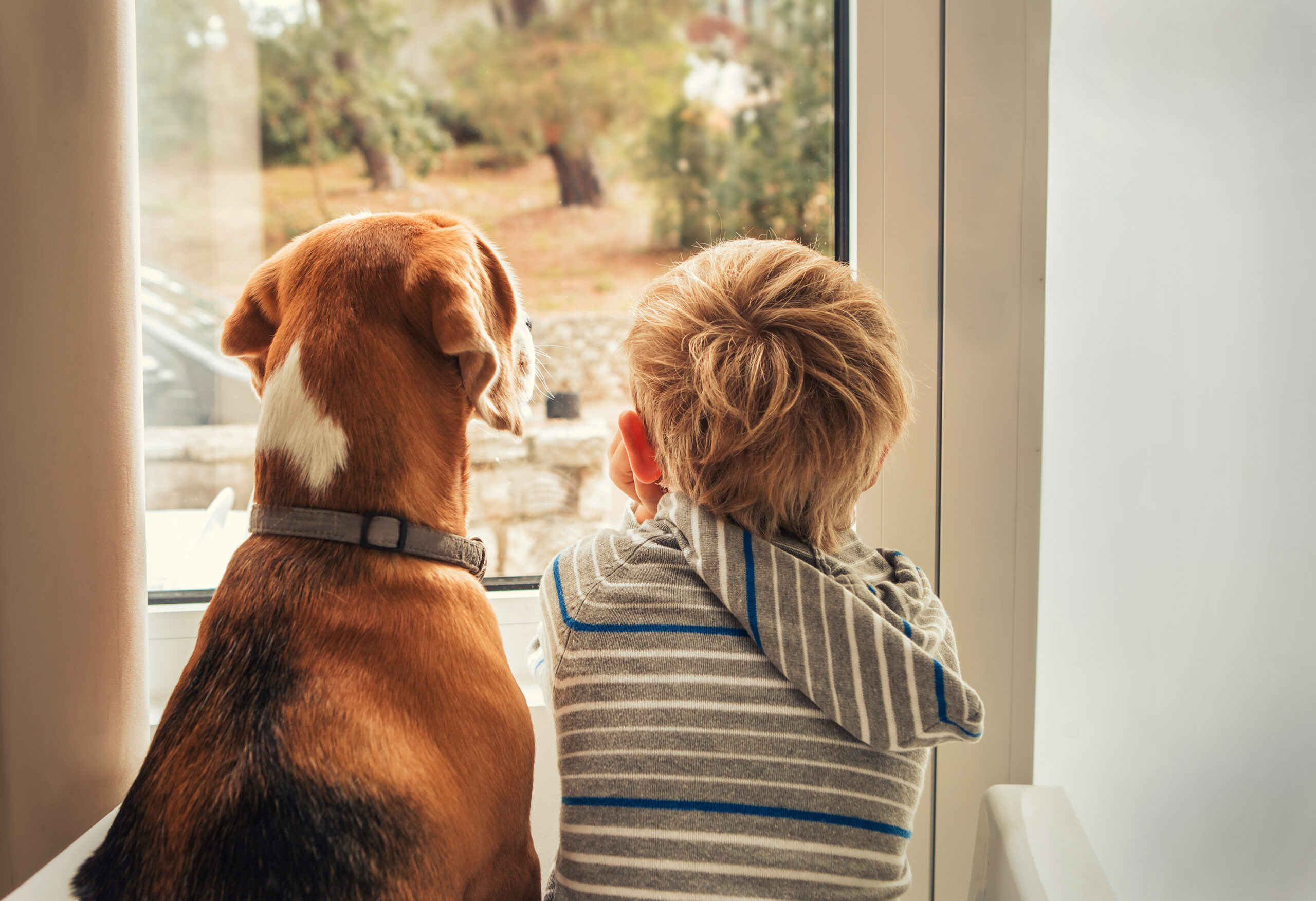
Ever notice how your dog seems to know when you’re about to leave the house? Dogs can pick up on cues like putting on your shoes or grabbing your keys, which signal your impending departure. These actions are part of their routine, and they react because they understand what comes next. Some dogs might get anxious, while others calmly watch you go, knowing you’ll return. Their ability to predict your departure showcases their awareness and understanding of daily patterns.
While your dog might not love it when you leave, there are ways to ease their anxiety. A consistent goodbye routine and reassuring gestures can make separations less stressful for both of you. Leaving them with a favorite toy or treat can also provide comfort and distraction. Knowing that your dog understands your actions means you can take steps to make your departures a routine part of their day. This understanding deepens your bond and helps them feel secure, even when you’re apart.
